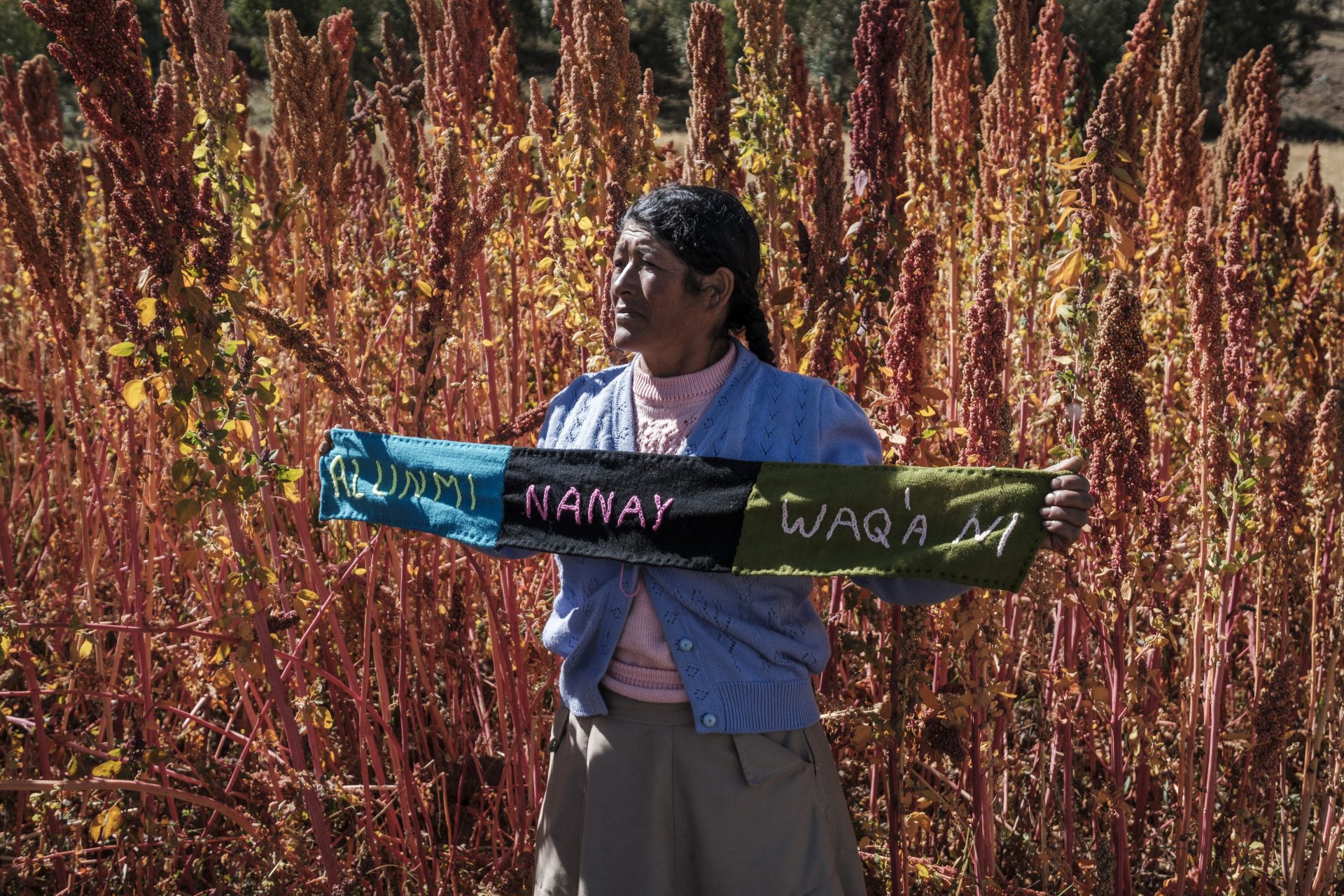Online Seminar – Artists and Transitional Justice

AFIELD will host a seminar over 3 weeks in March 2024 focusing on ‘transitional justice’ to deliberate justice, accountability and reparation, beyond the field of criminal justice, through the lens of art.
‘Transitional justice’ is a term attributed to the legal scholar Ruti Teitel from the early 1990s as “the full range of diverse processes and mechanisms used by a society to address massive past abuses, with a view to establishing accountability, providing justice and enabling reconciliation.”
2015 AFIELD fellow Alejandra Ballón Gutiérrez has described as “the time in between the crime and when justice is made… It is the accompanying of the victims through this process.” Which includes the “confronting of past violence and divisions, to overcome them, and to prevent future ones.” (justiceinfo.net)
The seminar by AFIELD will convene artists, lawyers and thinkers to help define terms, describe methodologies, and present “case studies”, in the aim of broadening and deepening the understanding of artists’ contribution to the process of justice in contexts past and present of systemic violence, war and armed conflict in different parts of the world.
The sessions will each be 2 hour long, to be held on Wednesdays:
March 13th, March 20th, and March 27th.
3-5pm CET (Paris)
Session 1:
March 13th, 3-5pm CET
Documenting and data gathering: “The right to know”
Introduction (20 min)
AFIELD & Partner
Case Studies and Q&A (60 min)
Alejandra Ballon Gutierrez, social scientist, visual artist, and feminist activist, whose work is situated at the intersection of gender, human rights, race, and decolonial perspectives. Her doctoral dissertation in social anthropology focused on the forced sterilization program under the government of Alberto Fujimori and the long struggle for justice for at least 272,000 women and 22,000 men.
Lawrence Abu Hamdan, is an award winning artist, audio investigator and the founder of Earshot, the worlds’ first not-for-profit organisation producing audio investigations for human rights and environmental advocacy. Abu Hamdan’s work on sound and listening has been presented in the form of forensic reports, lectures and live performances, films, publications, and exhibitions all over the world. He received his PhD in 2017 and has held fellowships and professorships at the University of Chicago, the New School, New York and the Johannes Gutenberg University Mainz, where he developed his research AirPressure.info.
Dmytro Hreshko, Film Director. His recent film Divia is an observational documentary about the catastrophic impact on Ukraine’s environment as a result of the Russian invasion and how nature is resisting and recovering from this aggression.
Discussion (30 min)
Break out & Summary
Session 2:
March 20th, 3-5pm CET
New narratives, towards justice: personal storytelling to collective representation
Keynote (20 min)
Rosemarie Buikema, professor of Art, Culture and Diversity at Utrecht University, has broadly published on feminist theory, postcolonial studies and memory studies, transitional justice and the arts. Her recent publications include Revolts in Cultural Critique (2021) and she is projectleader of the digital museum of Eaquality of Difference Moed.online.
Case Studies and Q&A (60 min)
María Belén Correa, Founder of Archivo de la Memoria Trans [Trans Memory Archive] (AMT). With 15,000 pieces of photographs, videos, and newspaper and magazine clippings, AMT challenges prevailing narratives by serving as a depository for a deliberately erased collective memory and reminding society of the experiences of trans people, who have faced hostility and incomprehension in society and suffered from negligence of the state.
Sevinaz Evdike, was member of Komîna Fîlm a Rojava, a film collective rooted in Rojava’s revolutionary philosophy and inspired by the Democratic multicultural self-administration in the North and East of Syria. Established by film-makers and supporters of the revolution their mission is of developing the cinema of the revolution.
Roman Bondarchuk is an award-winning film director who has produced films for festivals and television throughout the world. Among his best-known films are Ukrainian Sheriffs, Euromaidan: Rough Cut and Volcano.
Discussion (30 min)
Break out & Summary
Session 3:
March 27th, 3-5pm CET
Creating spaces to heal: repairing and restorative justice
Keynote (20 min)
Joseph Kaifala, lawyer, historian, writer and human rights activist, founded the Center for Memory and Reparations, facilitating remembrance and common narratives around the Sierra Leonean civil war. He established the Jeneba project to provide education for girls in Sierra Leone and is leading the mapping and protection of mass graves across Sierra Leone.
Case Studies and Q&A (60 min)
Jamela Alindogan, Award winning journalist and Founder of Sinagtala Centre For Women and Children in Conflict, a group that sends aid to women and children in conflict zones in the region of Mindanao, Philippines and addresses the rebuilding of the victims’ sense of identity.
Renzo Martens is an artist and founder of the Institute of Human Activities (I.H.A.), an organization founded in 2012, whose mission is “to prove that artistic critique on economic inequality can redress it—not symbolically, but in material terms.” He is a close collaborator of The Congolese Plantation Workers Art League (CATPC), a cooperative of plantation workers in Democratic Republic of Congo working to make art, and use its income to purchase ancestral lands once confiscated by Unilever and its subsidiaries. CATPC will represent the Dutch pavilion at the 2024 Venice Biennial, supported by Renzo Martens and curator Hicham Khalidi.
Filippo Furi is a researcher, anthropologist and a fellow at the Convergence Institute. He is a member of Migreurop, a network that focuses on the fundamental rights of migrants and people in exile. He is a close collaborator of the Navire Avenir, the first vessel especially designed to save lives in the Mediterranean sea.
Discussion (30 min)
Break out & Summary
Photo: Alejandra Ballón Gutiérrez, Mujeres de Anta, 2022 / Liz Tasa
